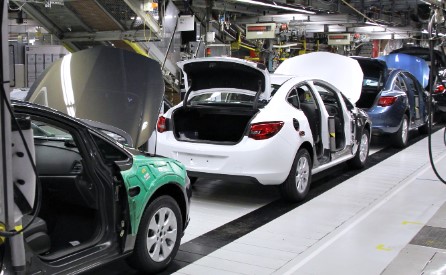
(Photo : en.wikipedia.org)
- The EU has increased tariffs on Chinese-built EVs to 45.3%, sparking retaliation from Beijing.
- The tariffs are to counter perceived unfair subsidies, with China's EV production capacity twice the size of the EU market.
- China has filed a complaint under the WTO dispute settlement mechanism and launched probes into imports of EU products.
- The EU's decision comes as European automakers face competition from lower-cost Chinese EVs, with Chinese brands' EU market share rising to 8%.
The European Union (EU) has made a significant move that has sent shockwaves across the global automotive industry. The EU has decided to increase tariffs on Chinese-built electric vehicles (EVs) to as much as 45.3%. This decision comes at the end of a high-profile trade investigation that has not only divided Europe but also prompted retaliation from Beijing. The European Commission, after a year-long anti-subsidy probe, has set out extra tariffs ranging from 7.8% for Tesla to 35.3% for China's SAIC, over and above the EU's standard 10% car import duty.
The new tariffs, which were formally approved and published in the EU's Official Journal, took effect immediately. The Commission, which oversees EU trade policy, has stated that these tariffs are necessary to counter what it perceives as unfair subsidies, including preferential financing and grants, as well as land, batteries, and raw materials at below-market prices. The Commission has pointed out that China's spare production capacity of 3 million EVs per year is twice the size of the EU market. Given the 100% tariffs in the United States and Canada, Europe is the most obvious outlet for these EVs.
China's Response and Retaliation
However, China has expressed its disagreement with the ruling. The country's commerce ministry stated that it does not agree with or accept the ruling and has filed a complaint under the World Trade Organization (WTO) dispute settlement mechanism. The ministry also noted that the EU side indicated it would continue to negotiate with China on price commitments, expressing hope for a solution acceptable to both sides as soon as possible to avoid escalating trade friction.
In response to the EU's move, Beijing has launched its own probes this year into imports of EU brandy, dairy, and pork products in apparent retaliation. It has also challenged the EU's provisional measures at the WTO. The China Chamber of Commerce to the EU expressed profound disappointment at the protectionist and arbitrary EU measure and was disheartened by the lack of substantial progress in negotiations to find an alternative to tariffs.
Impact on the European Automotive Industry
The EU's decision comes at a time when European automakers are grappling with an influx of lower-cost EVs from Chinese rivals. The Commission estimates that Chinese brands' share of the EU market has risen to 8% from below 1% in 2019 and could reach 15% in 2025. It also states that prices are typically 20% below those of EU-made models.
The EU's stance towards Beijing has hardened in the last five years. It views China as a potential partner in some areas, but also as a competitor and a systemic rival. However, EU members are not united on EV tariffs. Germany, the EU's biggest economy and major car producer, opposed tariffs in a vote this month in which 10 EU members backed them, five voted against, and 12 abstained. Germany's economy ministry stated that Berlin supported ongoing EU negotiations with China and hoped for a diplomatic resolution to mitigate trade tensions while protecting EU industry.
The measures come as thousands of German industrial workers, including at the carmakers, strike for higher wages, with Volkswagen possibly about to announce shutting plants on home soil for the first time in its 87-year history. German carmakers have heavily criticized the EU measures, aware that possible higher Chinese import duties on large-engined gasoline vehicles would hit them hardest.
* This is a contributed article and this content does not necessarily represent the views of btin.co.in









